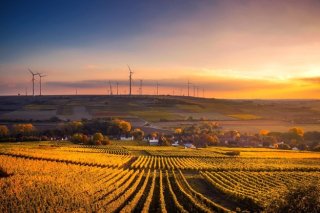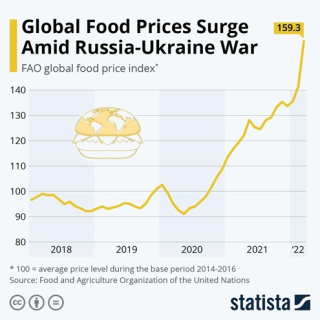Pexels.com
Posted by Talal Rafi[1]
The world is running a race against time on the climate front. An IPCC report states that the world needs to attain net zero emissions targets by 2050 to keep temperatures 1.5℃ below pre-industrial levels. A Mckinsey study shows that $9.2 trillion of investments are needed annually over the next three decades if the world is to achieve net zero. With 85% of investors considering the sustainability factor when investing, the ball is in the court of the governments to create green policies that can drive long-term economic growth. On which specific policies should governments focus?
Importance of environmentally sustainable policies
90% of executives believe sustainability is important. The interest is also reflected among consumers with 73% of Gen Z[2] consumers stating that they will spend more for sustainable products. Companies moving towards environmental sustainability also attract better talents with 44% of millennials and 49% of Gen Z saying personal ethics drove their career decisions. Failure to formulate green policies will mean being left behind and global economic isolation in the coming decades.
What are the challenges
Green policies formulations come with their set of challenges. Greenwashing by companies is distasteful for consumers but even more when it comes to potential investors. Different types of green reporting frameworks make decision making complex. Also, the reporting is only as good as the data that it uses. Green investments also face challenges due to the inability to meet government regulations with delays ranging from 6 months to 2 years. Finding skilled labor in the green sector is another challenge. Lastly, the world is currently facing a severe economic and fiscal crisis. Government spending on green projects is often not seen as a priority. With an energy crunch and food shortages globally, governments are focusing more on short-term policies to bring relief to people.
Long-term economic growth brought by green policies
Food security - Greener agricultural policies lead to lesser wastage and circular usage of resources. Many developing countries are unable to develop due to trade deficits and increased borrowing brought on by the high cost of food imports. Policies to grow food closer to the place of consumption by proliferating vertical farming which reuses water, can eliminate the need to transport food through long distances. Agricultural innovation also leads to more efficient food production. For example, Bowery Farming, a Google backed vertical farming firm, is able to use 95% less water than traditional farms. The Russia-Ukraine war has shown how vulnerable the world is to food production with 28% of fertilizers and 30% of global wheat exports coming from these two countries. With global food prices at their highest ever (see Chart), many developing countries are finding their trade and fiscal deficits widening and debt levels reaching unsustainable levels. Global food production could decline by up to 30% by 2050 if there is no effective climate adaptation. Food security is essential to bring in long term economic growth.
Image: Statista
Energy security - The cost of solar and wind power generation has dropped sharply in the last decade and is now competitive with conventional fuels. Government policies in support of renewables can help lessen energy dependency with many developing countries spending a sizable portion of their foreign reserves on importing oil and gas. This is adding further pressure on trade deficits and the accumulation of debt. Sri Lanka, which is facing its worst economic crisis spends over 70% of its revenue on interest payments alone. The country is facing severe fuel shortages due to a lack of dollars to import fuel, leading many exporting industries to slow down their production. Prioritizing greener alternatives could have lessened the effects of the lack of foreign reserves. Energy security would also prevent such adverse external impacts to the economy leading to a more stable economic trajectory.
Private sector investments - Greener policies by the government can help drive investments into the private sector. Surveys show that 91% of banks watch Environmental, Social and Governance (ESG) factors when financing and 85% of investors had considered ESG factors when they invested in 2020. The dynamics of private sector investments have drastically changed for the good in the last decade. Green policies by governments requiring private sector enterprises to become more environmentally sustainable will help them attract investments and drive up foreign reserves.
Increasing exports - With the urgent need to decarbonize, many countries have set net zero targets. The European Union’s taxonomy, which regulates environmental sustainability for businesses in the EU, will make it tougher for exporters in developing countries to enter the lucrative EU market without a shift towards more sustainable business operations. Large private corporations such as Apple, which has committed to carbon neutrality for its entire supply chain by 2030, means businesses that do not become greener will be left out of global supply chains.
[1] Talal Rafi is a Development Economist and also specializes in Sustainability. He is a Senior Global Management Consultant at Deloitte and is based in Sri Lanka. He was on Deloitte's Global ESG Operations Team and he is a member of the Expert Network of the World Economic Forum
[2] Generation Z, also known as Zoomers, is the demographic cohort succeeding Millennials and preceding Generation Alpha.
Note: The posts on the IMF PFM Blog should not be reported as representing the views of the IMF. The views expressed are those of the authors and do not necessarily represent those of the IMF or IMF policy.







